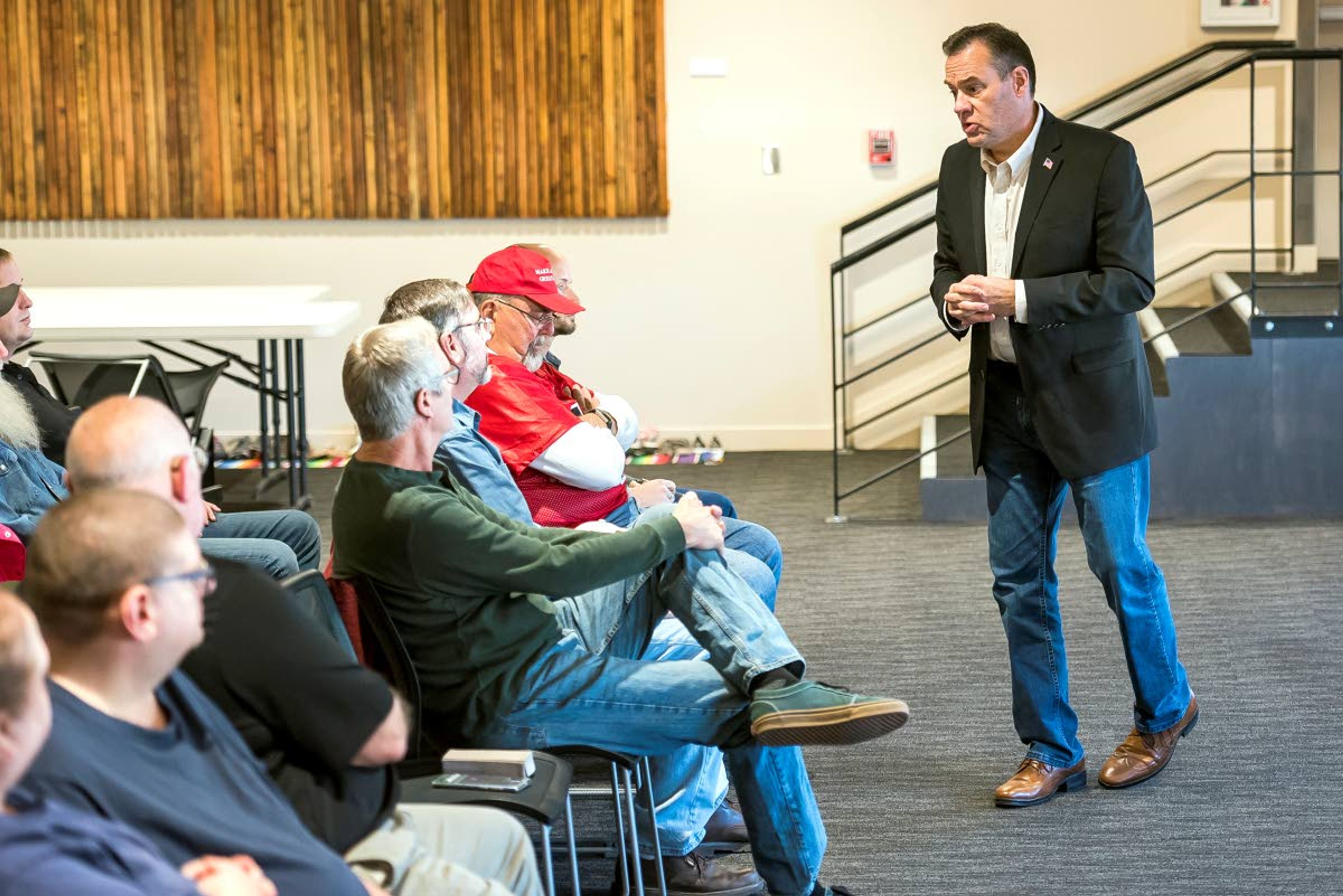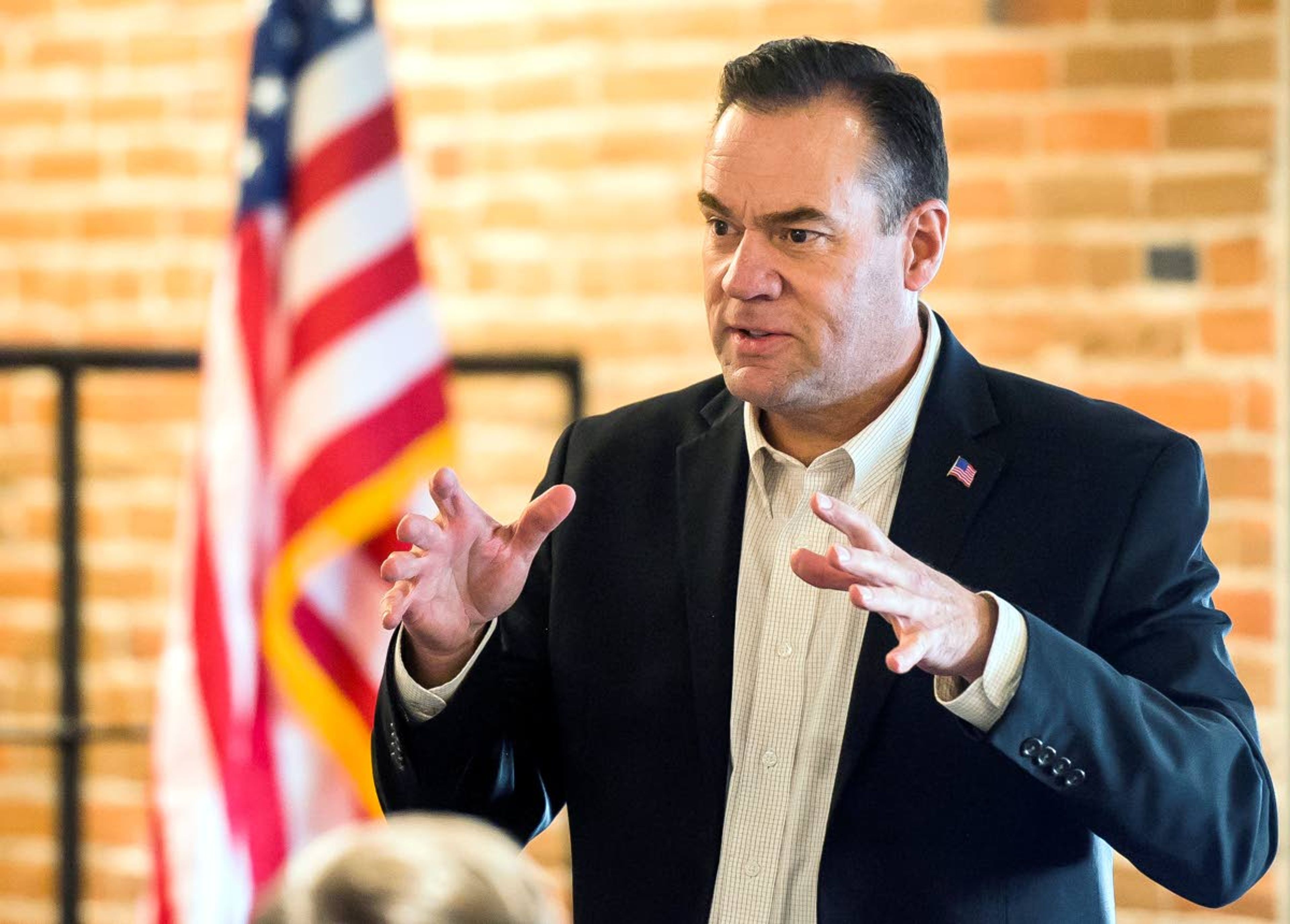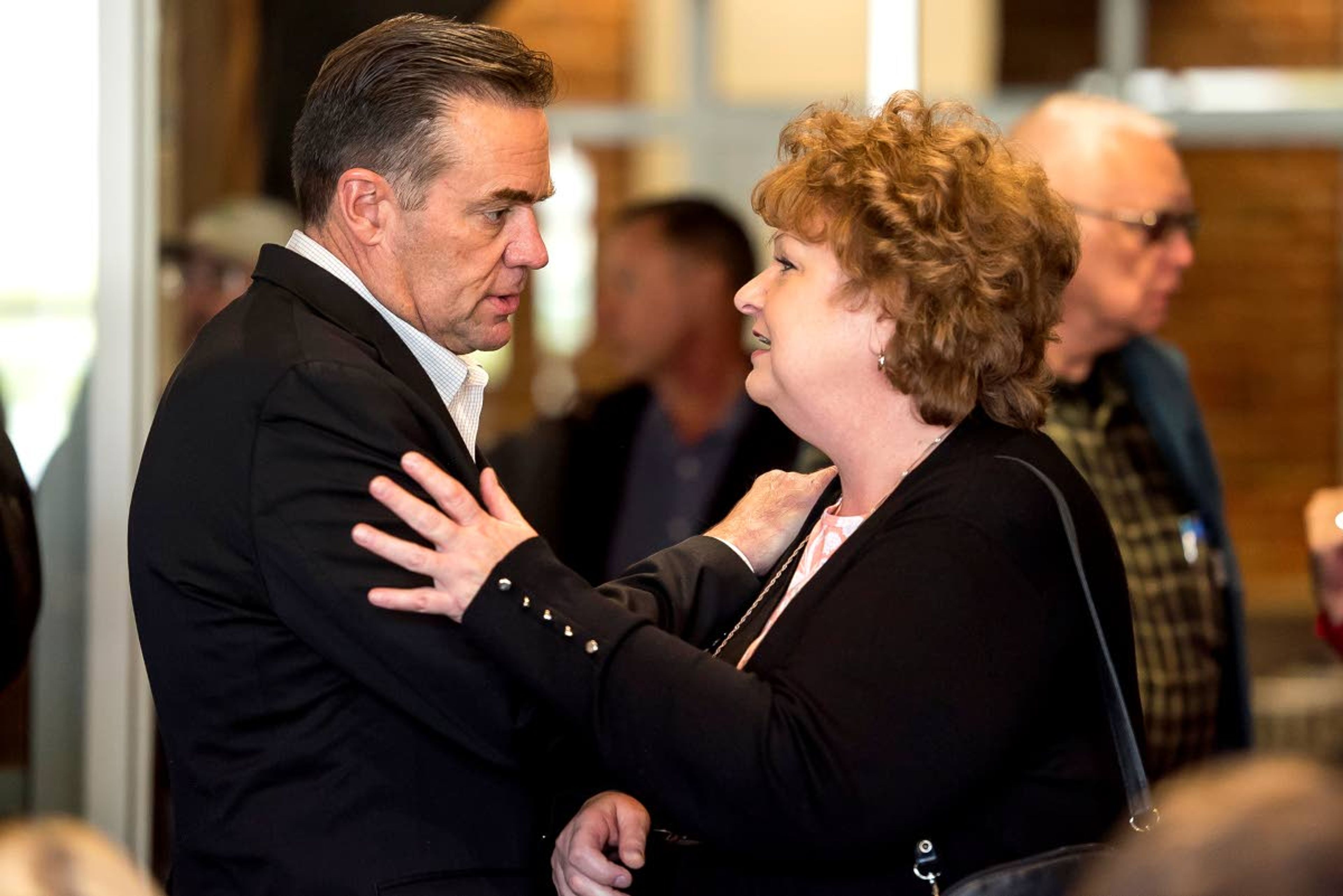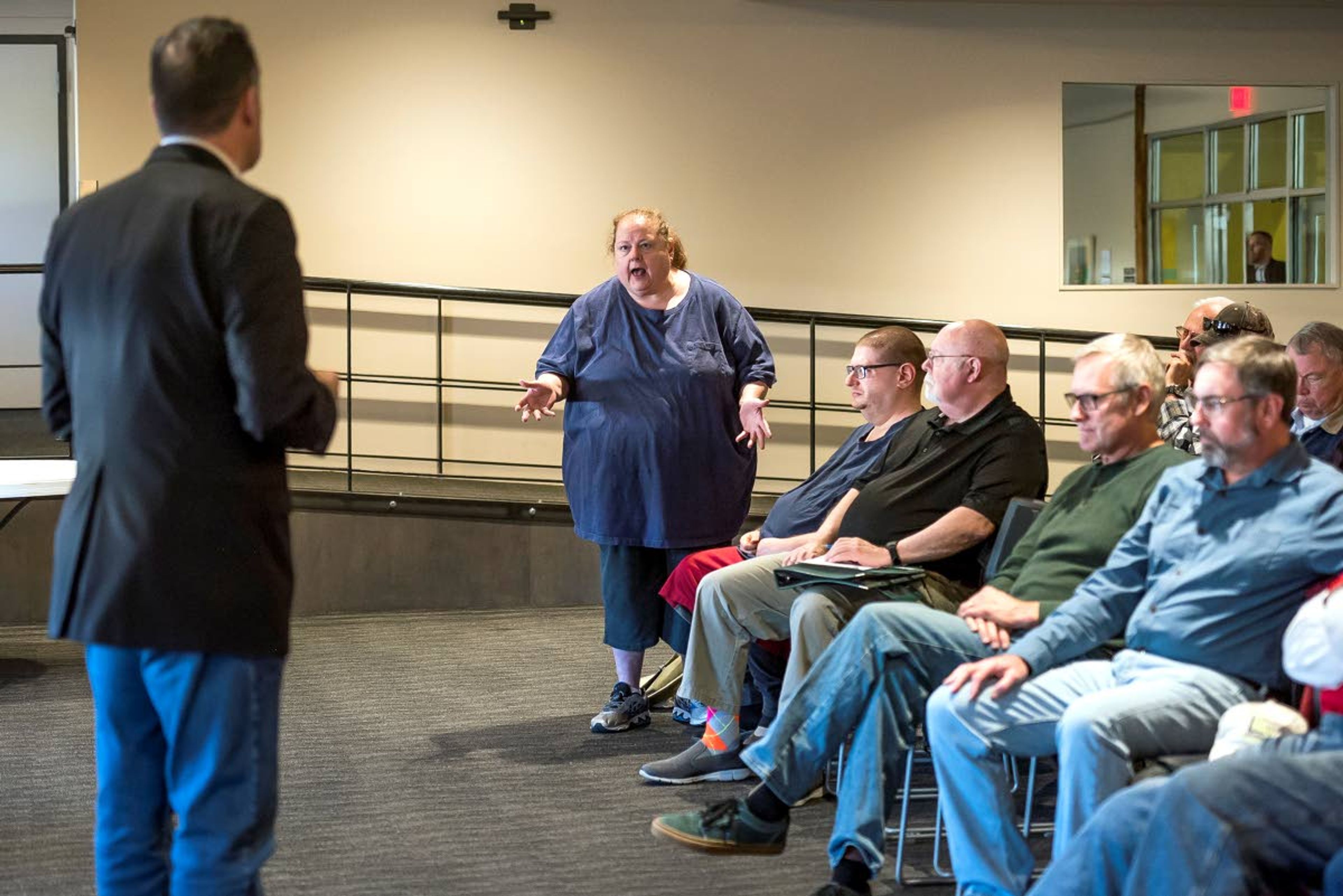Fulcher warns about federal agencies
Idaho congressman says CIA, NSA, FBI seem to be ‘acting outside the law’ during town hall meeting at Lewiston City Library
Republican Idaho Congressman Russ Fulcher bashed federal law enforcement and intelligence agencies during a town hall meeting Friday in Lewiston, claiming they are acting like an unaccountable fourth branch of government that’s trying to take down President Donald Trump.
Responding to a question from Lewiston Orchards resident Marla Barnes about the damage done to U.S. international relationships by Trump’s decision to pull American troops out of northern Syria, Fulcher described the federal government as a powerful beast that can be wielded against external foes. But he warned that powers granted to the agencies after the Sept. 11, 2001, terrorist attacks can also be misused against American citizens.
“And that’s problematic,” Fulcher said of legislation like the Patriot Act. “It gave the intelligence community — CIA, NSA, FBI — a tremendous amount of open-field running. They hate each other, by the way, for the most part. They don’t work together all that well. But they’ve been able to operate within their own scope so much with surveillance, data gathering, all that stuff, they’ve just seemed to be acting outside the law.”
Fulcher’s comments echoed many of those from Trump, who frequently contradicts the intelligence community and condemns investigations into him, his associates and his political campaigns as a “witch hunt.”
And like the president, Fulcher went after House Intelligence Committee Chairman Adam Schiff, who is spearheading the impeachment inquiry.
“Schiff is entirely out of line,” Fulcher said, adding that he has talked with Speaker of the House Nancy Pelosi on the topic a number of times. “The only reason she acted uniformly is that she didn’t have the votes on the floor.”
Fulcher said he expects a vote on impeachment before the end of the year and that the process has not been fair. He told the audience of about 50 people at the Lewiston City Library that he has signed onto an effort to have Schiff — a California congressman — censured for his recent parodic rendition of Trump’s controversial phone call to Ukrainian President Volodymyr Zelensky. The call is central to the House impeachment inquiry.
In a memorandum of the July call released by the White House, Zelensky asks Trump for military aid. In response, Trump asks his Ukrainian counterpart to pursue investigations into a Democratic email server and former Vice President Joe Biden. Democrats have widely criticized the exchange as an abuse of presidential power, especially since Trump asked Zelensky for the investigations as a “favor” after the request for military aid.
But Fulcher questioned the existence of that language in the exchange, even though it is in the White House’s own account of the conversation.
“I’ll have to go back and check, but I don’t know that that word was used,” Fulcher said.
He instead said there is a legitimate argument to be made that a commander in chief has a responsibility to follow up on suspected wrongdoing. Fulcher continued his criticism of the impeachment inquiry, but implied his thinking could change if he is convinced that Trump acted improperly.
“If it turns out that it’s an overt and agreed-upon consensus that this is what happened, then yes, of course,” he said. “But we’re not there yet.”
Fulcher opened his town hall with his observations about the deep partisanship in the country, saying Americans haven’t been so divided since the Civil War. He fielded questions on a number of other topics, including health care and the safety of new high-speed wireless cellular networks. He also addressed the unfolding situation in Syria, where the U.S. has been criticized for leaving its Kurdish allies to bear a Turkish assault alone.
Fulcher said he has “angst” over Trump’s surprise decision Sunday to pull out U.S. troops, but ultimately supported the president’s desire to disengage from “endless conflicts.”
A Moscow resident asked Fulcher if he is joining the growing ranks of Republicans who agree that human-caused climate change is becoming a more serious problem. Fulcher said that while America has made progress toward reducing its own carbon emissions, it needs to put more pressure on countries like China and India to do their fair share.
And he said that well-intentioned environmental regulations can sometimes backfire. As an example, he pointed out that the U.S. now has to rely on China to supply much of the lead needed for industrial applications because smelting operations like those that once peppered northern Idaho have long been shuttered.
“Everyone who has one of these has got lead,” he said, holding up his cellphone. “Or anyone who writes with a No. 2 pencil has got lead. We get it from China. So we shut down facilities that were marginally good-bad with emissions, and now we’re buying it all from facilities that have zero precautions.”












